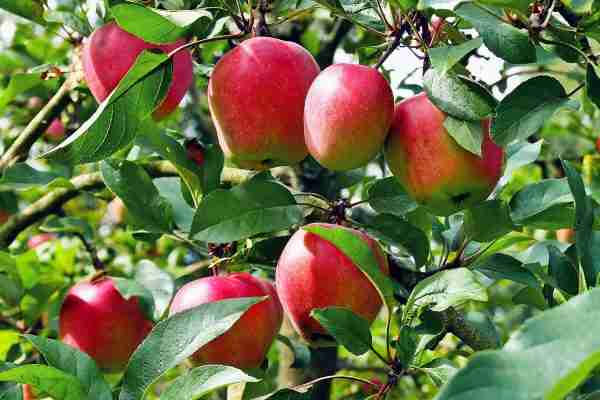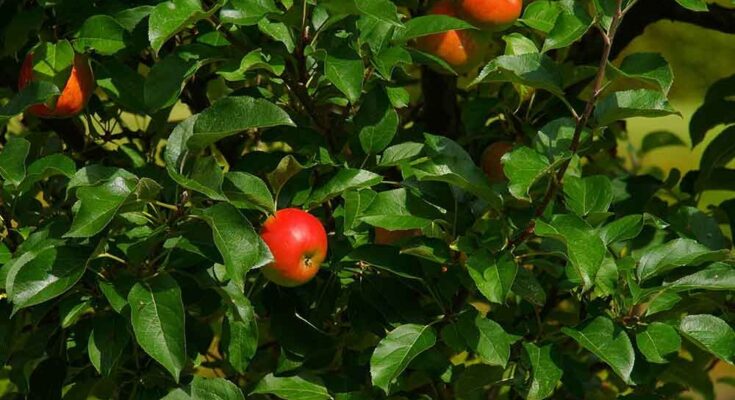Unpredictable weather patterns, longer droughts, harsher winters, and unexpected frosts are becoming the new norm. In the UK, where temperate weather has long supported a wide range of fruit trees, these changes are already causing concern. However, hope lies in the resilience of certain fruit tree varieties that can adapt and thrive even in the face of a changing climate. These resilient trees not only provide a sustainable source of fresh produce but can also help gardeners future-proof their landscapes. In this article, we explore some of the most resilient fruit trees that are well-suited to unpredictable weather, along with specialist advice from a nursery specialist at CRJ FruitTrees.
The Challenge of Changing Climates
Climate change is altering weather patterns worldwide, and the UK is no exception. Gardeners have observed shifts in seasonal temperatures, changes in rainfall distribution, and an increase in extreme weather events such as heatwaves, storms, and late frosts. These fluctuations can severely impact fruit trees, which are sensitive to their environment. For instance, apple trees may experience reduced yields if exposed to late spring frosts, while stone fruit trees like cherries and plums may suffer from drought stress during prolonged dry spells.
Despite these challenges, some fruit tree varieties have demonstrated an ability to withstand harsher conditions. As the nursery specialist points out, “It’s important to select the right varieties for your region, especially if you’re planning for the long term. Many heritage varieties are not only better adapted to local conditions but also more resilient to disease and temperature fluctuations. Our advice is to research well and choose wisely.”
Resilient Fruit Tree Varieties
The key to maintaining a fruitful orchard or garden in the face of climate change is selecting resilient tree varieties that can adapt to varying conditions. These trees are not only hardy but can also provide a consistent yield despite environmental stressors. Below, we examine some fruit trees that are particularly well-suited to the UK’s changing climate.
Apple Trees (Malus domestica)
Apples are a staple in British gardens and orchards, and with careful selection, they can continue to thrive even in a changing climate. Heritage varieties, such as ‘Egremont Russet’ and ‘Bramley’s Seedling,’ are particularly well-suited to the UK’s temperate climate and can tolerate fluctuating temperatures. These varieties are known for their disease resistance and ability to cope with late frosts, which are becoming more common in spring.
Apple trees are also relatively drought-tolerant once established, making them a good choice for areas prone to dry spells. With over 2,000 apple varieties available, gardeners can choose those that are best suited to their region and soil conditions. The key is to ensure they are planted in well-drained soil and are given sufficient water during their early years to develop strong root systems.
Pear Trees (Pyrus communis)
Like apples, pear trees are a popular choice in the UK, and certain varieties are more resilient to climate fluctuations. ‘Conference’ and ‘Doyenne du Comice’ are two varieties known for their hardiness and ability to produce fruit in cooler and unpredictable weather. These trees also exhibit a strong resistance to common diseases such as pear scab and fire blight, making them reliable choices for sustainable orchards.
Pear trees are well-suited to the UK’s temperate climate, but they can also tolerate warmer summers and drier conditions. With proper care, including mulching and regular pruning, they can thrive despite the stresses of a changing climate. A well-cared-for pear tree can live for decades, providing a sustainable source of fruit for generations.
Plum Trees (Prunus domestica)
Plum trees are another excellent option for those looking to buy fruit trees that can withstand changing weather patterns. Varieties such as ‘Victoria’ and ‘Marjorie’s Seedling’ are known for their robustness and ability to produce fruit even after challenging weather conditions, such as cold snaps in early spring. Plums are relatively low-maintenance trees, and their ability to tolerate different soil types and moisture levels makes them a good choice for a wide range of locations.
One of the challenges with plum trees is their susceptibility to pests, particularly aphids. However, by planting resilient varieties and implementing good garden practices—such as encouraging beneficial insects like ladybirds and hoverflies—gardeners can minimize the impact of pests on their crops.

Cherry Trees (Prunus avium)
Cherries are a beloved fruit in the UK, but they can be vulnerable to late frosts and extreme temperature changes. However, some varieties, like ‘Stella’ and ‘Morello,’ are known for their resilience. These trees can cope with cooler springs and are also self-fertile, meaning they don’t require cross-pollination from another tree to produce fruit, which can be advantageous in smaller gardens or areas with limited space.
While cherry trees can be sensitive to water stress, mulching around the base of the tree can help retain soil moisture during dry periods. Proper pruning and care are essential to prevent disease and ensure the tree remains productive.
Fig Trees (Ficus carica)
As the UK climate warms, fig trees, which are traditionally associated with Mediterranean climates, are becoming increasingly viable in many parts of the country. Figs are remarkably drought-tolerant once established and can thrive in areas with long, hot summers. Varieties like ‘Brown Turkey’ are particularly well-suited to the UK’s climate, offering a balance of hardiness and fruitfulness.
Fig trees require minimal care once established, although they do need to be planted in well-drained soil and protected from strong winds. With the right conditions, a fig tree can produce an abundance of sweet, nutritious fruit, even in cooler climates.
Adapting Your Orchard for the Future
Choosing resilient fruit trees is just one part of the equation when it comes to adapting to climate change. Proper planting, care, and management practices are essential to ensure that trees can thrive even in less-than-ideal conditions. Below are some important considerations for maintaining a healthy orchard or garden in the face of a changing climate.
Soil Health
Healthy soil is the foundation of a resilient orchard. Ensuring that your soil is rich in organic matter, well-drained, and able to retain moisture will help your fruit trees cope with drought, heavy rainfall, and temperature fluctuations. Composting and mulching are effective ways to improve soil structure and fertility, while reducing the need for chemical fertilizers.
Water Management
Drought and erratic rainfall patterns are becoming more common in the UK. To help your fruit trees survive, it’s important to implement water-saving techniques. Installing rainwater harvesting systems, using soaker hoses, and mulching around the base of trees can help conserve moisture. Young trees, in particular, need regular watering until their root systems are well-established.
Pruning and Disease Management
Regular pruning is crucial for maintaining the health and productivity of fruit trees. Pruning helps improve air circulation, reduces the risk of disease, and ensures that the tree’s energy is directed toward fruit production. Disease-resistant varieties are an excellent choice for minimizing the impact of pests and fungal infections, but gardeners should also be vigilant in monitoring their trees for signs of trouble.
Choosing the Right Rootstocks
In addition to selecting resilient fruit tree varieties, choosing the right rootstock can greatly influence a tree’s ability to adapt to different soil and climate conditions. Rootstocks control the tree’s size, disease resistance, and ability to tolerate environmental stress. For example, dwarf rootstocks are ideal for small gardens and can make it easier to manage water and nutrients in compact spaces, while semi-vigorous rootstocks may be better suited for larger orchards.
The Role of Technology and Innovation
Advances in horticultural technology and research are playing a key role in helping gardeners and orchardists adapt to climate change. New breeding programs are developing fruit tree varieties that are more resilient to extreme weather conditions and pests. These innovations, combined with improved irrigation systems, soil monitoring technology, and environmentally friendly pest control methods, are making it easier to maintain productive orchards in an increasingly unpredictable world.
The nursery specialist emphasized the importance of staying informed about these developments. “We’re seeing a lot of innovation in fruit tree cultivation, from disease-resistant varieties to more efficient watering systems. The key is to stay updated on new techniques and technologies that can help you manage your orchard in the long term.”
Conclusion: Future-Proofing Your Garden
As the climate continues to change, gardeners and orchardists must be proactive in selecting resilient fruit tree varieties that can thrive in the face of increasingly unpredictable weather. By choosing trees that are well-adapted to local conditions, implementing smart water and soil management techniques, and staying informed about the latest horticultural advancements, it’s possible to create a sustainable and productive garden or orchard.
For those looking to buy fruit trees that will stand the test of time, it’s essential to prioritize resilience over novelty. Heritage varieties, such as apples and pears that have thrived in the UK for centuries, offer a solid foundation for any orchard. At the same time, exploring more unusual options like figs and cherries can add diversity and resilience to your landscape.
Ultimately, the future of gardening in the UK may look different from the past, but with careful planning and an eye toward resilience, it is still possible to enjoy the fruits of your labor for years to come.




